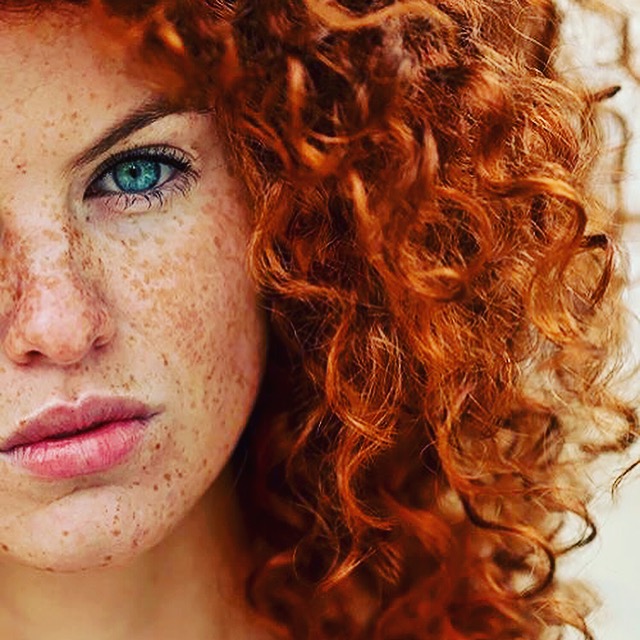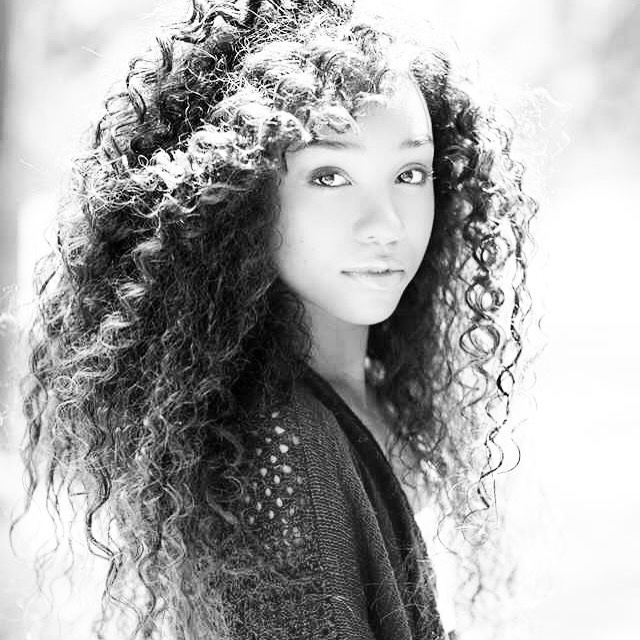Hair Myths, Hair Science
HAIR MYTHS
We’ve heard it all before , and perhaps you’ve heard a few yourself so we thought we’d run you through a few of the myths and put the bad ones to bed and bring the good ones to light ………. Ready ?!
RINSING YOUR HAIR IN COLD WATER WILL MAKE IT SHINIER
Rinsing in cold water may be invigorating but they don’t exactly close the pores, they actually constrict the blood capillaries. These tiny blood vessels carry nutrients and pick up waste products from the skin’s surface need to be active for optimum effect; suddenly constricting them does no good at all to your hair. However, cold anything creates contraction so we must agree that perhaps a cold rinse may seal the outer cuticle of your hair a little. IF YOU DON’T WASH
YOUR HAIR IT CLEANSES ITSELF
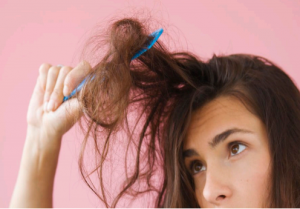 Not washing your hair will not enable your scalp to cleanse itself, it will just become dirtier, cells will get compounded in your natural oils, bacteria from perspiration will possible cause scalp infection and will also cause you to itch…… You would not stop washing any other part of your body, so why your scalp?
Not washing your hair will not enable your scalp to cleanse itself, it will just become dirtier, cells will get compounded in your natural oils, bacteria from perspiration will possible cause scalp infection and will also cause you to itch…… You would not stop washing any other part of your body, so why your scalp?
Understanding your hair myths
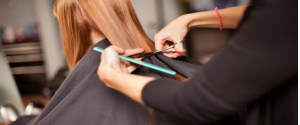 Whether you’ve got long locks or a trendy pixie, you probably have your own unique hair challenges—maybe it’s a weird cowlick or unruly curls. In any case, separating hair fallacies from facts will help you concentrate on things that will actually help your hair grow healthier and look better. Here, myths about your hair, and how you can use the truth to your (beautiful) benefit.
Whether you’ve got long locks or a trendy pixie, you probably have your own unique hair challenges—maybe it’s a weird cowlick or unruly curls. In any case, separating hair fallacies from facts will help you concentrate on things that will actually help your hair grow healthier and look better. Here, myths about your hair, and how you can use the truth to your (beautiful) benefit.
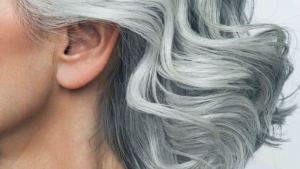 Cutting your hair frequently makes it grow faster
Cutting your hair frequently makes it grow faster
“Trimming your hair doesn’t affect growth,” says Guy Parsons, Founder of My Hair Doctor. “That happens at the scalp.” But there’s a reason experts suggest trimming your hair every six to eight weeks: “Frayed ends make hair look thinner and cause breakage, so when you cut them off, your hair appears fuller,” says Guy.
If you pluck one gray hair, two will grow back in its place
This one only seems true because one gray usually means more grays. “This myth probably started because people plucked one gray hair, then noticed more afterwards,” says Guy. Sorry to be the bearer of bad news, but more silver strands would have surfaced no matter what—you can’t blame the plucking itself. Still, that’s not a license to launch a full-on plucking war on your grays. “Your hair will become weaker if it’s plucked too much over time, and it’ll eventually stop growing back,” warns Guy. “That’s not a big deal if you’re plucking here and there, but it’ll add up if you start going gray all over.” Time to celebrate your silvers or book an appointment with a colorist
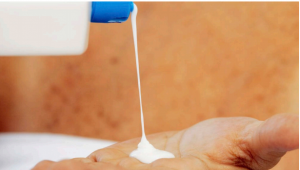 CAN MY HAIR GO GREY OVERNIGHT
CAN MY HAIR GO GREY OVERNIGHT
There have been reports of people who have lost all their hair colour overnight but it is exceedingly rare – tens of millions to one – a major life shock or trauma could possibly cease the colour production (melanin) in some if not all of your hair follicles immediately but it is extremely doubtful and unbelievably rare
Shampooing makes your hair shed
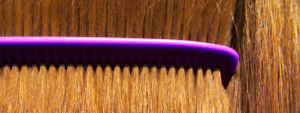 Don’t blame the shower: If your hair is going to fall out, it will simply fall out somewhere else, albeit somewhere less noticeable (thanks, clogged drain). “This is the biggest myth I hear,” says Guy parsons. “People often lose hair in the shower, so they associate shampooing with shedding.” Problem is, if you cut back on washing in an effort to spare your hair, you can actually make the problem worse. “Oil buildup can cause inflammation, which stunts hair growth.” Address the real problem: “Stress is often the culprit behind mild hair loss—divorce, surgery, a death in the family can make it more severe,” says Guy. Try and add a few drops of essential oils, like lavender, tea tree oil, and rosemary, to your shampoo; they may stimulate hair growth, according to a Journal of Cosmetic Dermatology review.
Don’t blame the shower: If your hair is going to fall out, it will simply fall out somewhere else, albeit somewhere less noticeable (thanks, clogged drain). “This is the biggest myth I hear,” says Guy parsons. “People often lose hair in the shower, so they associate shampooing with shedding.” Problem is, if you cut back on washing in an effort to spare your hair, you can actually make the problem worse. “Oil buildup can cause inflammation, which stunts hair growth.” Address the real problem: “Stress is often the culprit behind mild hair loss—divorce, surgery, a death in the family can make it more severe,” says Guy. Try and add a few drops of essential oils, like lavender, tea tree oil, and rosemary, to your shampoo; they may stimulate hair growth, according to a Journal of Cosmetic Dermatology review.
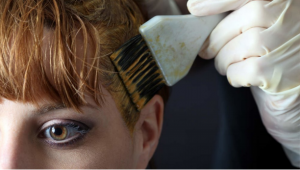 The more you brush your hair, the healthier it will be
The more you brush your hair, the healthier it will be
If you’ve ever groaned at the idea of running a brush through your hair 100 times a day, you’ll like this one: there’s no value in brushing your hair more than you already do. In fact, excessive brushing may do more harm than good. “Over-brushing can damage your hair’s cuticle,” says Guy. (That’s your hair’s outer, protective layer.) Brush your hair when it’s knotty, but leave it alone otherwise.
Color-treated hair is unhealthy
Bleaching is indeed one of the worst things you can do to your hair, but not all types of color treatments should have a bad rep. “Removing color from the hair makes each strand thinner and more prone to breakage,” says Guy. But adding color actually plumps up your strands, making your locks look thicker. “I tell my clients it’s okay to color their hair, as long as they’re going darker.”
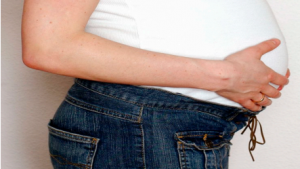 You can’t dye your hair when you’re pregnant
You can’t dye your hair when you’re pregnant
“The main concern with dyeing your hair during pregnancy is the risk associated with inhaling ammonia, not the risk of it being absorbed into your scalp,” says Carrie Ann Terrell, MD, an OB-GYN and professor at the University of Minnesota. “But the levels of ammonia are so low that it’s not a problem, especially if you go to a salon, which will have industrial strength ventilation.” Still, some women prefer the natural route. Henna is a plantderived, ammonia-free dye, making it a favorite among pregnant women.
 Using the right products will make your hair thicker
Using the right products will make your hair thicker
Most people think healthy-looking hair is all about external factors like the weather or the products you use. But what you eat affects your hair more than you think. “It takes your body a lot of energy to grow hair,” says Guy. “It needs nutrients.” That means if you’re on a restrictive diet, your body won’t be able to dedicate energy to your hair, since it’ll be too busy worrying about your essential organs. Make sure you’re getting enough carbs, protein, and healthy fats, and pay extra attention to zinc, iron, and vitamin D. “They’re crucial vitamins for hair growth, and a lot of women are deficient,” says Guy. Talk to your doctor about a supplement if your levels are low—especially if you don’t eat red meat (which is loaded with iron) or try our My Hair Doctor Nutritional supplement.
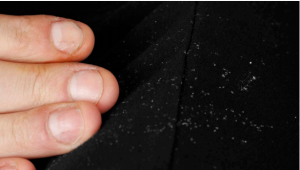 Switching shampoos is good for your hair
Switching shampoos is good for your hair
“It’s fine to switch shampoos, if you like different effects (one is anti-dandruff, one is volumizing, and so on), but it’s perfectly fine to use the same shampoo every time you wash,” says Guy. As for that my hair looks so great with this new shampoo feeling? You’re probably just liking the novelty: Shampoos do have different effects, says Guy, but it’s not necessary to switch unless you want something new.
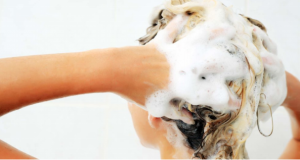 Dandruff signifies a dry scalp
Dandruff signifies a dry scalp
We’re used to equating flakes with dryness, so it’s an easy mistake to make, but it’s an oily scalp that usually goes hand in hand with dandruff. “Dandruff is caused by a type of yeast that tends to overgrow in an oily environment,” says Guy. “Dandruff is your body’s reaction to the yeast.” That’s a problem if you cut down on washing in an attempt to diminish dandruff: use our Scalp Health Shampoo.
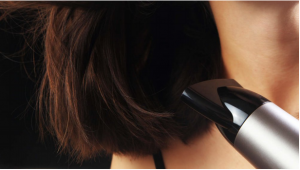 Sudsy shampoos clean your hair better
Sudsy shampoos clean your hair better
Shampoos don’t necessarily need to lather to get the job done. “We’re just used to associating a lather with cleanliness,” says Guy. But sulphates, the foaming agent added to many shampoos, can fade your color if you dye your hair. What’s more, there’s some debate about possible harmful effects. The American Cancer Society has deemed sulphates safe but some lab tests suggest sulphates might pose a cancer risk, explains Mitchell Kline, MD, assistant clinical professor at the Weill Cornell Medical College. If you prefer to play it safe (but still like that sudsy sensation), try a sulfate-free shampoo
Air-drying is healthier than blow-drying
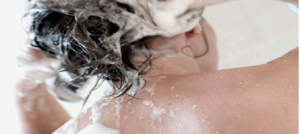 Yes, you should spare your hair the blast of hot air, but sometimes you just need it to be dry in 15 minutes. But what if we told you that air-drying isn’t all it’s cracked up to be? A study comparing blow-dried to air-dried found that blow-drying causes more damage to the hair’s surface (as expected), but air-drying can create damage deeper within strands. Researchers say that the interior of the hair swells when exposed to water for extended periods of time, possibly creating more damage than heat styling. (Yes, our minds were blown, too.) Your best bet, according to this study, is to use the lowest heat setting on your dryer (or hold it at least six inches away from your hair), making sure to move the dryer continuously, so you don’t concentrate heat on any one spot for too long.
Yes, you should spare your hair the blast of hot air, but sometimes you just need it to be dry in 15 minutes. But what if we told you that air-drying isn’t all it’s cracked up to be? A study comparing blow-dried to air-dried found that blow-drying causes more damage to the hair’s surface (as expected), but air-drying can create damage deeper within strands. Researchers say that the interior of the hair swells when exposed to water for extended periods of time, possibly creating more damage than heat styling. (Yes, our minds were blown, too.) Your best bet, according to this study, is to use the lowest heat setting on your dryer (or hold it at least six inches away from your hair), making sure to move the dryer continuously, so you don’t concentrate heat on any one spot for too long.
You should wash your hair every other day
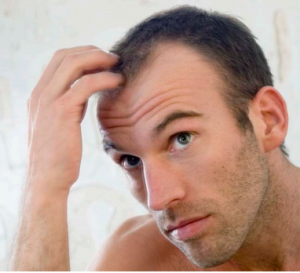 First you heard that you should wash your hair every day, then you started hearing that you should wash every other day. Throw all the hair-washing rules out the window, and actually pay attention to the look and feel of your hair. Everyone’s hair is different. If your hair is oily at the roots, wash it. If not, skip washing until you start feeling greasy. People with dry hair may want to let their scalp become slightly oily to ensure they’re not overwashing it, says Guy Parsons.
First you heard that you should wash your hair every day, then you started hearing that you should wash every other day. Throw all the hair-washing rules out the window, and actually pay attention to the look and feel of your hair. Everyone’s hair is different. If your hair is oily at the roots, wash it. If not, skip washing until you start feeling greasy. People with dry hair may want to let their scalp become slightly oily to ensure they’re not overwashing it, says Guy Parsons.
Men inherit baldness from their mother’s side of the family
Here’s a little biology 101: If you’re a man, your mother gave you an “X” chromosome and your father gave you a “Y.” (Women receive two Xs.) “Many people think male pattern baldness is an X-linked trait, passed down from the mother’s side,” says Luis Garza, MD, assistant professor of dermatology at Johns Hopkins School of Medicine, who studies balding. But you can’t blame mum for this one: “We suspect multiple genes, from both mum and dad, contribute to baldness,” Dr. Garza says.
 Wearing hats can cause hair loss
Wearing hats can cause hair loss
“The idea is that hats cut off circulation to the scalp, causing hair loss,” says Guy Parsons. “But it’s just an old wives’ tale.” Male pattern baldness is caused by genetics, and is turned on by things like high testosterone and stress, explains Guy. “People probably just noticed hair in their hats and made the false connection,” he adds. That doesn’t mean you’ll need to hide under your hat if you see the first signs of balding: Guy says a minoxidil (brand name: Rogaine) regimen works preventively, not just after-the-fact. (It can be used by both men and women.)
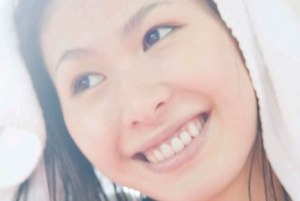 You should towel-dry your hair
You should towel-dry your hair
If you’re like most people, you exit the shower, immediately reach for a towel, and start rubbing your hair vigorously. Don’t. “Towel drying is rough on your hair, and can promote breakage,” says Guy. Instead, gently squeeze your hair with a towel, and then comb it with a wide-toothed comb to remove excess water.
